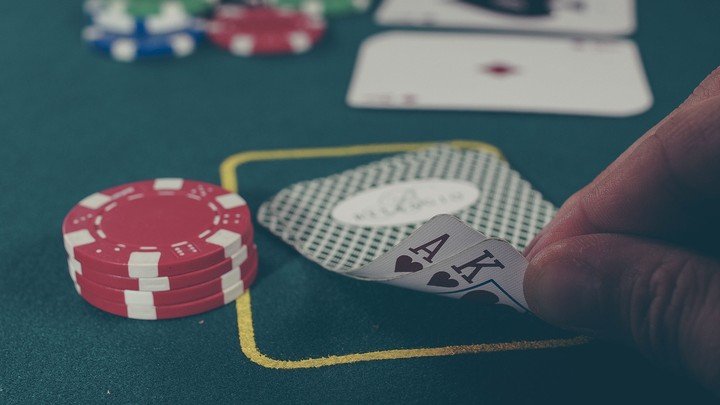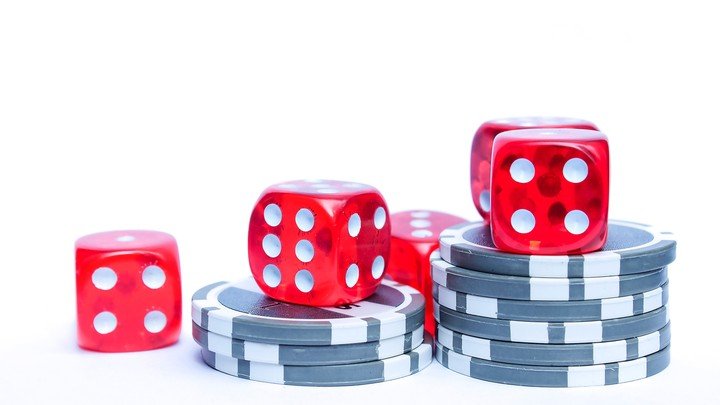When you are dealt QQ, KK, or AA, it’s natural to immediately start thinking about potentially winning a big pot. This expected simple win can quickly turn into a complicated concern once the flop hits, and your opponent starts showing serious aggression. Here, we examine the best ways to evaluate the situation and come to the right decision.

Board Texture
The board texture will provide you with reason to either feel more confident, or cool your expectations for the hand.
Logic dictates that you should be unhappy to see connected boards such as 5,6,7 or entirely suited flops, because they increase the chances of you being up against a hand where you’re almost drawing dead. But balance your disappointment against the odds of such an event occurring:
| Hand | Odds | Percent |
|---|---|---|
| A flush | 118-1 | 0.8% |
| A straight when holding any two connecting cards J-10 through 5-4 | 76-1 | 1.3% |
| Three of a kind when holding a pocket pair | 7.5-1 | 11.8% |
So, do not despair if you are faced with this scenario, but be aware that nut Flush draws with an over card or two, or Straight draws with a pair can sometimes be played very fast by an opponent on the flop. There is also the unlikely worst case scenario, where you could be almost dead already.
The Pre Flop Range of Your Opponent
If you reach a point in the hand where you are considering folding a big pair, it is essential that you consider how preflop play might be affecting the potential holdings of your opponent.
When the board reads 3,4,5,6 and you’ve called your opponents 4 bet preflop for example – Should you really be putting your opponent on a better hand than you, and be folding AA when they shove the turn?
Surely they’re more likely to flat call a 3 bet pre with hands like 2,2 and 7,7? Other hands that contain a 2 or 7 they’d almost always fold to aggression pre.
If we change the scenario a little and say that there was only one raise preflop, and it came from a loose opponent on the button – now they have every hand containing a 2 or 7 still in their range. Tight players who have shown strength preflop, should always have a hand like JJ-AA and AK that misses this board too, so adjust your board texture concerns based on your opponent.
Post Flop Tendencies
Although it often holds true that aggressive preflop players are the same post flop, there will still be player specific tendencies post flop that are more precise and can help you more. Note taking online against regular opponents can really help here. You should also keep the following questions in mind:
– Does your opponent play big draws passively on the flop, or are they happy to jam all in and put you to the test?
– Are they likely to make small raises on the flop with top pair to try and better understand where they are while trying to gain thin value?
– Are they the type of player who simply sees a dangerous looking board and decides to pressure you even if they are holding nothing?
– Are they tight enough that they only raise for pure value, with hands like two pair or better?
By asking yourself these questions and being honest about the answers, you will see that there are some situations where you just have to let your hand go.
In live play particularly, you will encounter players who simply wait for strong hands like two pair and better to extract value from.
Don’t talk yourself into calling off here, even though it’s hard to fold and not see your opponents hand. How many players do you see in live events, that call, get shown the nuts, then say “I knew you had it too.” Trust yourself.
Stack Size
Stack sizes will always play a strong role in how complicated things get when you are playing a big pocket pair. The more the board develops, the more tricky your situation can become, because there are many cards that help your opponents range, but often only two that help your hand.
Deep stacked play may involve a very uncomfortable river decision for a lot of money, while shallow stacked play usually involves being all in at an early stage in the hand.
The money already invested in the pot when you play with a short stack also represents a significant part of your potential winnings / losses meaning that you are far less likely to make mathematical errors.
Your Position
Position is always a very strong advantage to have in poker, although it may not seem like it if you are still in the earlier stages of learning the game.
Consider how valuable it is to have the last say on whether the betting is closed in each betting round. If the situation looks favourable, you can attempt to extract more value from your hand, and if the board looks ugly, you can use your advantage to get to showdown cheaply.
Emotional Attachment to Hands
They say that love is blind, and this certainly rings true when it comes to premium hands in poker. Too often, players will make mistakes with over pairs that are emotional, rather than technical. Just because you’ve waited two hours for a good hand, that doesn’t alter the value of your AA when you find yourself put to a big decision.
One of the reasons poker is psychologically testing, is that we have natural positive responses to favourable situations, and we have expectations too. When you throw away that big pair, you choose to discard your happy feeling and your expectations, and normally without ever seeing the cards that would prove your decision to be right or wrong.
The emotion we attach to hands is not rational, because deep down, we know that emotion should never affect a decision, and can make it harder to think clearly. If your emotions get on top of you, maybe you’ll make a bad fold because you think your opponent is running super hot and the board gets dangerous. Or, perhaps you’ll feel like you’re being pushed around and you want to make a stand no matter what.
Anticipate the possible scenarios and always be aware that having a premium hand is no guarantee of anything. The best your hand can ever be before the flop is just a single pair, so take a deep breath, remember this article and think with your head, not your heart.
Article by Craig B.






